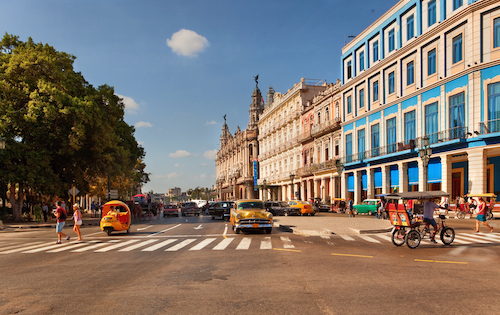Sometimes we expats find ourselves in situations that are not quite what we’re used to. Often, we see notable differences between many aspects of life when we move from country to country, and it can be hard to keep track.One of the more frequently discussed and obvious differences for expats is in the workplace. From the type of work visa you can get and the hoops you may have to jump through for it, to your employee entitlements and your responsibilities, the scope for cultural variations is huge. In this post, we take a look at working visas in Cuba, as well as what your rights and responsibilities are as a worker in the country.
What You Need To Know About The Work Visa
If you are thinking about working in Cuba, you will need to apply for a work visa in advance. This is applicable to almost every nationality. There are multiple types of work visa available, so ensure you are choosing the correct one for your profession. The types of work visa available for Cuba are as follows:
• D-1 visa for employees with technical, scientific, or other specialised qualifications
• D-2 visa for students and scientists
• D-3 visa for artists
• D-4 visa for athletes
• D-5 visa for asylum seekers and refugees
• D-6 visa for journalists
• D-7 visa for traders and businesspeople
• D-8 visa for religious workers
• D-10 visa for medical tourists
Official visit visas or ‘diplomat visas’ are also available for Cuba, but are only applicable to diplomats, ambassadors and politicians visiting from other countries. Many people find it difficult to get a work visa for Cuba, unless they have a contract offer prior to applying, or have relatives who are Cuban citizens.
Additionally, you will need to take into account the necessary documents. These include:
• Birth certificate: You will need a copy of your birth certificate (or potentially even the original) and may also be asked to provide a letter from the consulate or embassy of your country of birth stating that the certificate was issued according to the regulations of the government.
• Medical tests: These must be have taken place within the past six months.
• Chest x-rays and blood tests: You will need to provide recent chest x-rays as well as blood tests proving that don’t have HIV.
• Proof of education and references: You may be asked to provide proof of your education such as your diploma, and/or a reference letter from your teacher or employer.
• Criminal record check: You will need a copy of a criminal record check from within the past three months.
• Two pictures: You will definitely need two recent passport-sized photos for the visa application, but it is always wise to take more.
• Complete copy of your passport: You may have to take your current passport to the local embassy or consulate.
Your Rights As A Worker In Cuba
Workers’ rights in Cuba are set out under the Cuba Labor Code. This is essentially a framework for workplace protections. The code mandates an entitlement to vacation, maternity leave, and a maximum 44-hour working week, as well as defining health and safety rules within the workplace. The code also covers the role of unions, rules for hiring and firing employees, and procedures for resolving disputes. Health care, pensions, disability allowance and parental leave are all guaranteed by the state. There is also a system for unemployment and job retraining.
The code states the rights of workers to form unions. Trade unions play an important role in defining and defending labor rights in Cuba. While the code tasks unions with the responsibility for protecting workers, representing their interests and helping to resolve conflicts and disputes, it also states that the unions are responsible for increasing productivity and efficiency. The code also provides a framework for the granting of productivity-based bonuses and other incentives for efficiency.
Article 49 of the Cuban Constitution says:
“The state guarantees the right to protection, safety and hygiene on the job by means of the adoption of adequate measures for the prevention of accidents at work and occupational diseases.
“Anyone who suffers an accident on the job or is affected by an occupational disease has the right to medical care and to compensation or retirement in those cases in which temporary or permanent work disability ensues.”
Your Responsibilities As A Worker In Cuba
While there have been political changes in Cuba in recent times, it is still a communist-governed state. It has one of the most repressive media environments in the Americas, meaning that any outspoken statements against communism, the government, or even the inefficiencies of the country could land you in trouble. If you’re working in Cuba, you need to accept and respect that this is the way things are run. There are various strict rules in place over many aspects of life that you may take for granted, such as tightly controlled and censored internet access.
Would you like to share your experience of life abroad with other readers? Answer the questions here to be featured in an interview!

